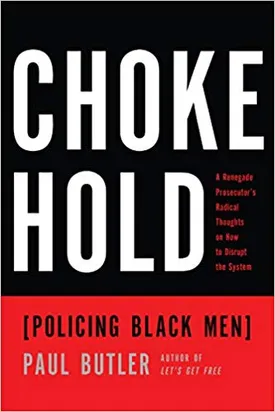Chokehold: Policing Black Men by Paul Butler
In his eye-opening work of scholarship, “Chokehold: Policing Black Men,” economic and legal scholar Paul Butler takes an unsparing look at the ongoing criminalization of black men in the United States. Drawing from decades of research, Butler’s book takes a deep dive into the legal, socio-economic, and cultural foundations of the criminal justice system, and the ways in which it disproportionately targets black males.
“Chokehold” begins with a searing indictment of a justice system that is biased against black men. According to Butler, the way the criminal justice system works makes it far more likely that they will be convicted than white males accused of the same crimes. The data is clear-cut: black men are imprisoned at six times the rate of white men, and are twice as likely to receive death sentences.
Butler then examines the institutional roots of these stark discrepancies and the underlying reasons why the system seems so biased against African-American men. Among the strategies Butler points out is the way in which the criminal justice system often uses minor criminal offenses, such as loitering, vagrancy, and drug possession, as weapons against black men. By prosecuting and penalizing them for minor offenses, the system perpetuates the myth that black men are criminal and dangerous and can be treated harsher than others.
Butler also analyzes the parole system and the seemingly arbitrary ways in which black men tend to be singled out as targets for harsh sentences. He shows how prosecutors often threaten defendants with overly long sentences that they can only escape by accepting a plea bargain, regardless of their actual guilt or innocence. This creates a system in which guilty pleas are incentivized, regardless of the strength of the case against the accused. He also clear-cut evidence that drug policy and policing disproportionately target black people.
Butler concludes with a call for the nation to take meaningful steps to end the ongoing, systemic discrimination that occur in the criminal justice system. He offers concrete solutions, such as the decriminalization of drug possession and the elimination of mandatory minimum sentences for drug offenses, that can help to restore fairness to the system. For Butler, the ultimate goal is to make our system a place where black Americans can be respected and treated equally before the law.
“Chokehold” is a must-read for anyone looking for a better understanding of how racism and institutional discrimination shape our justice system. Butler’s analysis is incisive and well-documented, and his solutions are not only thought-provoking but also feasible. The book is an essential contribution to the literature on criminal justice reform, and an excellent resource for those interested in fighting for racial justice and fairness in our criminal justice system.

